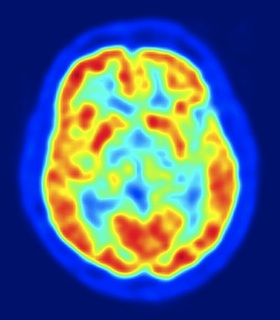Brain Death
When is human life over?
This is a true story. Here is a ![]() Brain death worksheet to use with this discussion.
Brain death worksheet to use with this discussion.
I use it to focus the students' attention on what is meant by death, particularly brain death, and how do we know that someone has died. I narrate the story factually but then in the discussion, I take different points of view; that of the parents as well as that of the medical institution. The course companion, page 497, gives additional support for students to discuss this situation.
 A friend of mine from high school, named Ken, was driving a motorcycle in Colorado in 1981 when he was about 25 years old. He lost control and crashed against a telephone pole. Yes, he was wearing a helmet but he was going quite fast when he crashed.
A friend of mine from high school, named Ken, was driving a motorcycle in Colorado in 1981 when he was about 25 years old. He lost control and crashed against a telephone pole. Yes, he was wearing a helmet but he was going quite fast when he crashed.
Ken was taken to hospital where he was diagnosed with severe brain damage due to oxygen deprivation as a result of the accident but his pupil reflexes were normal. What does this indicate about his condition?
He was put on an artificial respirator and a feeding tube. His family came to visit him, to caress his back, arms and legs, speak to him. Nurses turned Ken frequently to prevent bedsores. Never did Ken make any voluntary movements. Ken remained in a fetal position.
Some weeks later the family petitioned the hospital to remove the respirator but the doctors refused as the respirator forced air into Ken's lungs, so the family took the hospital to court. The family pleaded that if Ken was removed from the artificial life support systems, his healthy organs, such as his kidneys, could be used to help others in need of organs for transplants. If the body deteriorates over time without nervous stimulation, the organs would lose their functioning and not be useful. How would you decide?
Here there are several positions to take.
If Ken were to die by suffocation, does this mean his brain was so damaged that he could not live on his own? Wha would happen to his organs if he died this way? If he continued to breath on his own, is there hope that he may recover? Is it ethical to allow him to suffocate in order to obtain his organs for donation? Should those in need of organs for transplants suffer because we don't access those that are potentially available?
The court sided with the family and the respirator was removed. Ken started to breathe on his own. What does this indicate about his condition?
Months passed, Ken's weight dropped to only 45 kg (99 pounds) as his muscles atrophied from lack of use and from the artificial feeding program. He never showed any consciousness or responded to any sounds of his family talking to him. The hospital bills were accumulating to about $60 000 a year at that time. The family argued that they could not continue to pay the hospital care so they requested that the feeding tube be removed. Again the doctors refused on the grounds that this would starve the young man to death. The family returned to court to force the hospital. How would you decide?

Again several sides to take:
As the parents, who see their dead" son, they wish to mourn and have closure to this terrible event.
As the taxpayer, who asks "Where is the money going to come from? Is this really worth it?" At this point, I cry out " Do you want to kill my friend? How can you do this?" " Is life a question of how much it costs?" It can be quite a shock to the students but can be very effective. I get some really good back and forth arguments going on between students and myself.
As the doctors, who have the duty to maintain a human being's life until it dies on its own. Here I change sides and ask , But what is the quality of this life? Is this really a "human" life? What about the family, do they not have a life to live rather than hang over this young man's inert body? Can't this money be spent in better ways?" Again this provokes student responses.
The judge of the court prevented the doctors from removing the feeding tube, agreeing that this would starve Ken and this would not be ethical. The judge decided that Ken would become a ward of the State of Illinois so that the parents would not have the financial burden of their son's hospital needs.
Ken remained in his coma, curled up in his fetal position for over 10 years. Finally, his body gave up and his heart stopped beating in 1992.

 IB Docs (2) Team
IB Docs (2) Team
